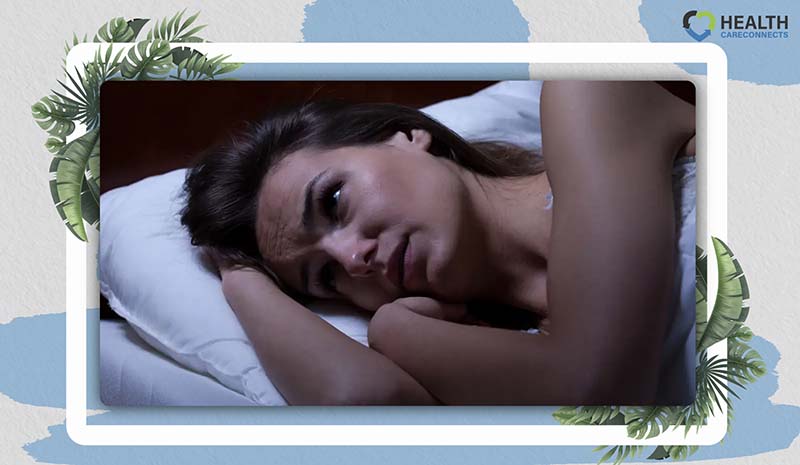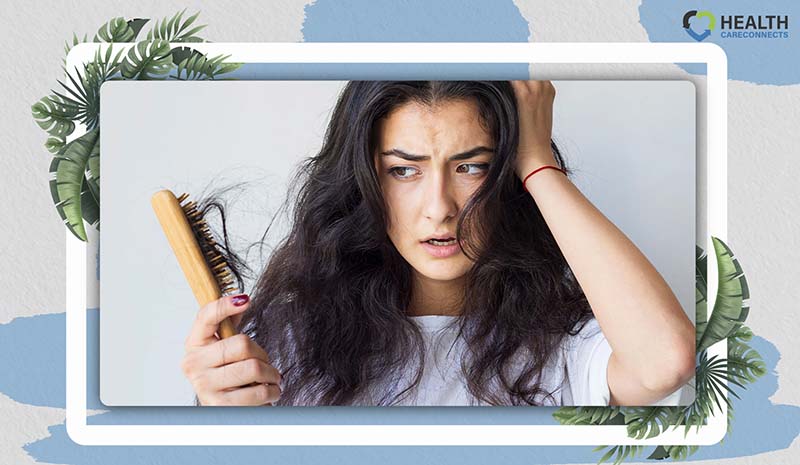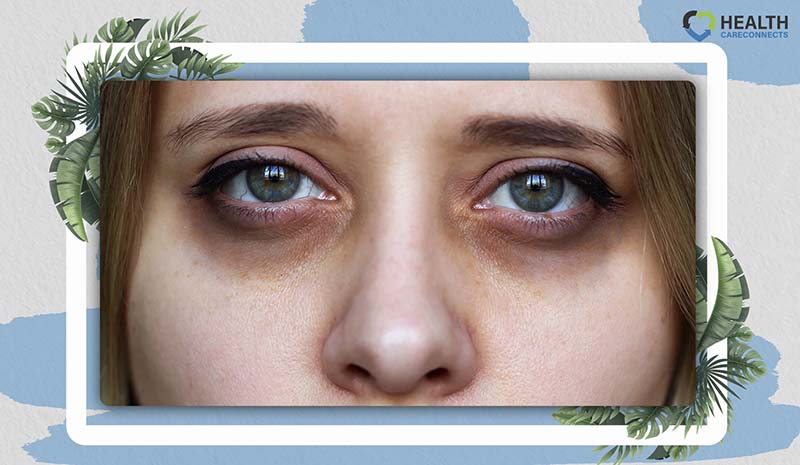In today’s fast-paced world, it’s often tempting to put work, social events, and screen time ahead of a good night’s sleep. Yet, this imbalance might be wreaking havoc on more than just our daily alertness – it could also be contributing to hair thinning and loss.
This article delves into the relationship between sleep deprivation and hair loss. We’ll examine how inadequate sleep affects your hair’s health, explore the long-term repercussions of poor sleep patterns, and offer actionable advice to improve sleep quality and foster healthy hair growth.
Make sleep a priority and safeguard your hair by understanding the deep connection between your sleep and hair health.
Does Lack of Sleep Cause Hair Loss?
Poor sleep habits can certainly impact our overall health, and hair loss can occur when we don’t get enough sleep. A Korean study conducted from 2002 to 2013 examined the effects of sleep disorders on hair loss.
The study found that people with sleep disorders were at a much higher risk of developing alopecia areata compared to those without sleep issues.
Not getting enough sleep can weaken hair follicles and affect hormone secretion. As a result, hair may become weak, dry, and dull. It’s important to note that while a period of poor sleep won’t always lead to alopecia, it can cause a reduction in hair density.

Is Hair Loss From Lack of Sleep Reversible?
Yes, lack of sleep can contribute to hair loss, but the relationship between these two issues often hinges on underlying factors such as stress, illness, or conditions like trichotillomania.
If these factors are driving both sleep deprivation and hair loss, there is a promising possibility for hair recovery once these issues are addressed.
To effectively combat hair loss related to poor sleep, a comprehensive three-pronged approach is recommended:
- Identify and Address Underlying Causes: Consult with healthcare professionals to determine the root causes of your hair loss and sleep disturbances. This may involve managing stress, treating illnesses, or addressing behavioral conditions like trichotillomania.
- Utilize Quality Hair Loss Treatments: Invest in reputable hair loss treatments that are tailored to your specific condition. These might include topical applications, supplements, or prescription medications, depending on professional recommendations.
- Improve Sleep Habits: Enhance your sleep quality by establishing a consistent bedtime routine, optimizing your sleeping environment, and potentially seeking medical advice for sleep disorders.
By tackling the issue from these angles, you not only foster better hair health but also improve your overall physical and mental well-being.

How Sleep Influences Hair Loss
Sleep deprivation is a form of stress, and stress can certainly contribute to hair loss.
Our bodies undergo repair and regeneration during sleep, so when we don’t get enough sleep, our bodies miss out on this crucial recovery time.
Stress has many negative effects on our bodies, including impairing skin function. If our skin isn’t working properly, our hair follicles can suffer. Sleep is crucial for the protein synthesis necessary for healthy hair, and without enough sleep, this process is disrupted.
Lack of sleep can trigger hair loss and worsen genetic conditions like androgenic alopecia. Poor sleep quality has also been linked to reduced melatonin levels, which could lead to thinning hair.
Some studies suggest that melatonin can help stop hair loss in some cases and encourage hair growth in others.
How Does Sleep Deprivation Impact the Body?
Not getting enough sleep can affect both your overall health and appearance. Besides hair loss, you might also notice an oily scalp and greasy hair.
Lack of sleep can lead to dark circles under your eyes, dull skin, and possibly acne breakouts. People suffering from sleep deprivation may also experience flare-ups of skin conditions like eczema or psoriasis.
Sleep deprivation increases the risk of several serious conditions, including diabetes, heart disease, and high blood pressure. It can also weaken your immune system, making you more susceptible to infections.

Preventing Hair Loss Caused by Sleep Deprivation
If sleep deprivation is contributing to your hair loss, there are several proactive steps you can take to mitigate it. While ideal, obtaining sufficient sleep may not always be feasible. It is advisable to consult with a healthcare professional about your sleep patterns to explore potential improvements or treatments.
To counteract hair loss caused by inadequate sleep, consider implementing these lifestyle adjustments:
- Establish a Regular Sleep Schedule: Aiming for 7-8 hours of sleep each night helps regulate cortisol levels, which can influence hair health.
- Develop a Bedtime Ritual: Establishing a consistent nighttime routine aids in signaling to your body that it’s time to wind down and prepare for sleep.
- Optimize Your Diet: Consuming a balanced diet and reducing caffeine intake, especially in the hours leading up to bedtime, can significantly enhance sleep quality.
- Limit Technology Exposure: Create a tranquil bedroom environment by keeping the room dark and minimizing electronic device usage before sleep. This reduces exposure to blue light, which can disrupt natural sleep cycles.
- Incorporate Relaxation Techniques: Engage in calming activities such as reading, meditation, or light stretching before bed to decrease stress levels and improve sleep onset.
Understanding and adjusting these aspects of your lifestyle can lead to better sleep and healthier hair. Additionally, learning about the effects of alcohol on hair loss could provide further insights into optimizing hair health.
Conclusion
The connection between insufficient sleep and hair loss is intricate and significant, raising the question: does lack of sleep cause hair loss? Chronic sleep deprivation can indeed disrupt the natural hair growth cycle, leading to increased hair thinning and shedding.
By prioritizing quality sleep and implementing stress-reduction strategies, you not only support healthier hair growth but also enhance your overall well-being. If you are experiencing hair loss or disturbances in your sleep patterns, it is crucial to seek professional advice.
A healthcare provider can offer personalized guidance and treatment options tailored to your specific needs. Take action today to ensure that your health, from your hair to your heart, is preserved for the future.
For those seeking more information and honest product reviews, I recommend visiting HealthCareConnect.

Dr. Joyce Slater: Your Guide to Informed Health Choices
Dr. Joyce Slater shines as a distinguished expert in the field of nutrition and public health. Contributing her vast expertise to HealthConnectbc, she embodies a deep-seated passion for enhancing public well-being. As a respected figure in her field. Dr. Slater’s academic journey and professional achievements are nothing short of inspirational.
Holding a significant position as a researcher and educator, Dr. Slater has delved deeply into the intricacies of food literacy and nutritional science. Her work, prominently featured in numerous esteemed scientific publications, underscores her dedication to expanding our understanding of food’s role in health and society.
At the heart of Dr. Slater’s professional ethos is a profound desire to positively impact individual lives through education and research. She often says, “Empowering people with the knowledge to make healthier choices is the most rewarding aspect of my work.” This principle is the cornerstone of her involvement with HealthConnectbc, where she strives to provide reliable and practical health advice.
Dr. Slater’s contributions to HealthConnectbc are multifaceted: academically, she offers insights into the complex world of nutrition and health, enhancing both public understanding and professional practices. Additionally, she is instrumental in guiding and inspiring the next generation of health professionals, thus fostering future excellence in the field.
Juggling rigorous research with her educational duties, Dr. Slater demonstrates an unwavering commitment to her profession. Her approachable nature and genuine concern transcend the confines of academia, touching the lives of everyone she interacts with. Dr. Slater looks forward to continuing her journey of discovery and education, dedicated to the ongoing improvement of public health and nutrition.
At HealthConnectbc, Dr. J. Slater is not just a contributor; she is a guiding light, dedicated to enlightening and motivating individuals towards a healthier and more informed lifestyle.
PUBLISHED ARTICLES
- Food literacy competencies: A conceptual framework for youth transitioning to adulthood (2018)
- Self-perceived eating habits and food skills of Canadians (2016)
- Challenges to acquiring and utilizing food literacy: Perceptions of young Canadian adults (2016)
- Socio-demographic and geographic analysis of overweight and obesity in Canadian adults (2009)
- Sustainable well-being: Concepts, issues, and educational practices (2014)

